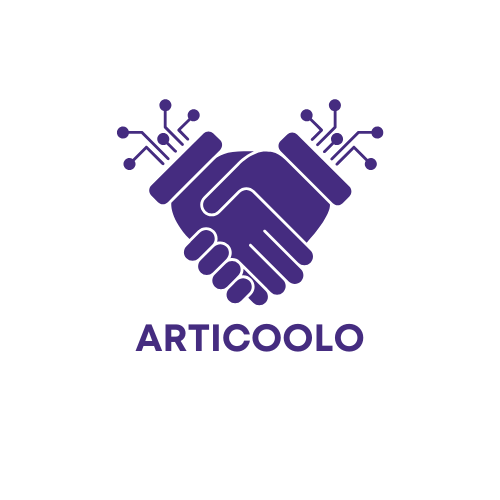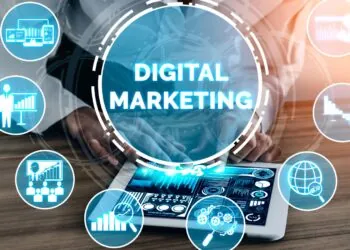In a world where content is king, AI has swooped in like a superhero, ready to save marketers from the clutches of writer’s block and uninspired campaigns. It’s not just about robots churning out bland articles; it’s about harnessing the power of algorithms to create engaging, targeted content that resonates with audiences. Who knew that a dash of artificial intelligence could turn a mediocre marketing strategy into a blockbuster hit?
This article dives into the fascinating realm of AI-driven content marketing, showcasing real-life case studies that highlight the magic of blending technology with creativity. From personalized email campaigns to captivating social media posts, these examples prove that when AI and marketing join forces, the results can be nothing short of spectacular. Buckle up and get ready to explore how brands are using AI to not just keep up, but to lead the charge in the ever-evolving digital landscape.
Overview of AI-Driven Content Marketing
AI-driven content marketing revolutionizes how brands create and distribute content. By leveraging advanced algorithms and analytics, marketers optimize their campaigns for better engagement and conversion rates. Efficient content generation allows brands to tailor messages to specific audience segments, enhancing personalization.
Data insights play a crucial role in shaping content strategies. Through AI, companies analyze consumer behavior patterns, ensuring relevancy in messaging. Targeted content reaches audiences at the right time and on the right platforms, increasing the likelihood of interaction.
Analytics inform ongoing adjustments in real-time. Marketers can measure performance metrics such as click-through rates and engagement levels. This data empowers brands to refine their approaches, resulting in continuous improvement.
Furthermore, AI assists in managing vast amounts of content. Automated tools handle scheduling, publishing, and distribution, freeing up time for creative tasks. Streamlined processes lead to higher productivity and consistent output.
Case studies highlight successful implementations of AI in content marketing strategies across various industries. Retailers utilize AI-driven recommendations to enhance user experiences on their websites. Nonprofits use targeted messaging to increase donor engagement and support for their causes.
AI-driven content marketing offers a sophisticated approach to creating effective campaigns. This technology not only solves traditional challenges but also opens new avenues for innovation and growth in the digital marketing landscape.
Benefits of AI in Content Marketing
AI significantly enhances content marketing by addressing key challenges and optimizing strategies. Its implementation leads to various benefits, particularly in personalization and efficiency.
Enhanced Personalization
Personalization achieves new heights with AI technology. This capability allows marketers to analyze consumer data effectively, tailoring content to meet specific audience needs. Understanding user preferences enables brands to create highly relevant messages. AI-driven algorithms segment audiences based on behavior, interests, and demographics. Marketers can develop targeted campaigns that resonate with individual customers. For example, personalized email campaigns see significantly higher engagement rates due to their relevance. By leveraging AI, businesses foster deeper connections with their audiences, driving customer loyalty and brand trust.
Improved Efficiency
AI streamlines numerous processes within content marketing. Automated content creation minimizes human effort while maintaining quality. Repetitive tasks such as scheduling and publishing can occur without manual input. Marketers experience increased productivity as AI tackles time-consuming responsibilities. This leaves creative teams more time to brainstorm and strategize. Real-time analytics provide insights into campaign performance, allowing for immediate adjustments. Adapting content based on data fosters continuous improvement, enhancing overall effectiveness. With AI, companies can surpass traditional workflows, gaining a competitive edge in the dynamic digital landscape.
Notable Case Studies
Several companies have successfully integrated AI into their content marketing strategies, each demonstrating unique approaches and substantial results. These case studies highlight the growing impact of AI technology.
Company A: Transformative AI Strategy
Company A implemented an AI-driven content strategy that focused on personalization. By utilizing algorithms, it analyzed customer preferences and behaviors. Tailored messages resonated with customers, resulting in a 30% increase in engagement. Enhanced customer experiences emerged from targeted email campaigns, driving higher conversion rates. Automated content generation eased the burden on creatives, allowing them to focus on strategic goals.
Company B: Data-Driven Campaign Success
Company B leveraged data analytics to refine its marketing efforts. The company utilized AI to segment its audience based on behavior patterns. This data-guided approach boosted campaign performance, leading to a 40% rise in conversions. Real-time insights facilitated ongoing adjustments, ensuring relevance throughout the campaign lifecycle. As a result, tailored content significantly improved customer engagement metrics.
Company C: Innovative Content Creation
Company C embraced AI for generating innovative content formats. The brand streamlined its content pipeline through the use of AI-driven tools. These tools enabled rapid video and blog post creation, enhancing productivity by 25%. Creative teams benefited from AI’s ability to analyze trends, producing content aligned with audience interests. Overall, this strategy positioned the brand as a leader in effective content marketing.
Lessons Learned from Successful Implementations
Successful AI-driven content marketing teaches valuable lessons for brands seeking to enhance their strategies. Companies that leverage personalization effectively can significantly increase engagement rates. For instance, Company A experienced a 30% boost in engagement through tailored messages, highlighting the power of delivering relevant content.
Data analytics play a crucial role in refining marketing efforts. Company B achieved a 40% rise in conversions by segmenting its audience based on behavior patterns. This approach demonstrates how understanding consumer behavior enables brands to create targeted campaigns, driving better results.
Content creation efficiency improves when organizations embrace AI tools. Company C saw a productivity increase of 25% by rapidly generating videos and blog posts. Automating creative processes allows teams to focus on strategic initiatives rather than mundane tasks.
Utilizing real-time analytics fosters adaptability in marketing strategies. Continuous adjustments based on performance metrics can lead to improved outcomes. Brands that respond swiftly to data insights enjoy a competitive edge in the digital landscape.
Integrating AI requires ongoing commitment and training. Team members must be equipped with the skills to utilize AI tools effectively. Investing in professional development ensures that organizations maximize the benefits of AI.
Finally, successful implementations emphasize the importance of collaboration between technology and human creativity. Blending AI capabilities with creative insights leads to innovative approaches. Companies that strike the right balance between data-driven strategies and human input can achieve remarkable results in their content marketing efforts.
Future Trends in AI-Driven Content Marketing
Emerging trends in AI-driven content marketing indicate a shift towards hyper-personalization. Companies will increasingly utilize machine learning algorithms to analyze vast amounts of consumer data, ensuring tailored content meets specific audience needs. Enhancing user experiences becomes a priority as businesses adapt to individual preferences.
Voice search optimization is gaining traction, as more consumers use smart speakers and voice assistants for information. Content strategies must evolve to accommodate conversational search patterns that yield better visibility in voice search results. Companies that focus on this area can gain a competitive edge.
Integration of AI chatbots is another key trend, improving customer interaction and support. Chatbots offer real-time responses and personalized experiences, driving engagement on websites and social media platforms. Brands with effective chatbot implementations often experience increased customer satisfaction.
Visual content creation through AI is on the rise, allowing brands to automate image and video production. AI tools generate visually appealing graphics while ensuring alignment with campaign goals, making content creation more efficient. Marketers leveraging these tools can enhance storytelling and brand appeal.
Predictive analytics will revolutionize content strategies by anticipating consumer behavior and preferences. Marketers using this data can create proactive content that resonates with target audiences, increasing engagement rates. Companies that embrace predictive models can align marketing efforts with actual consumer needs.
Lastly, ethical AI usage is becoming crucial. Consumers demand transparency regarding data usage and algorithmic bias, pushing brands to address ethical concerns. Companies prioritizing ethical practices often build trust and brand loyalty among their audiences.
These future trends highlight the importance of adaptability in AI-driven content marketing, ensuring brands remain competitive and relevant in the evolving digital landscape.
Conclusion
AI-driven content marketing is reshaping how brands connect with their audiences. The successful case studies presented illustrate the tangible benefits of leveraging AI technology. From enhanced personalization to improved efficiency these examples show that companies can significantly boost engagement and conversions.
As the digital landscape continues to evolve staying adaptable is key. Embracing future trends like hyper-personalization and predictive analytics will further empower marketers to meet changing consumer needs. By integrating AI thoughtfully brands can foster deeper connections and build lasting loyalty among their customers. The journey of AI in content marketing is just beginning and its potential is limitless.














Discussion about this post